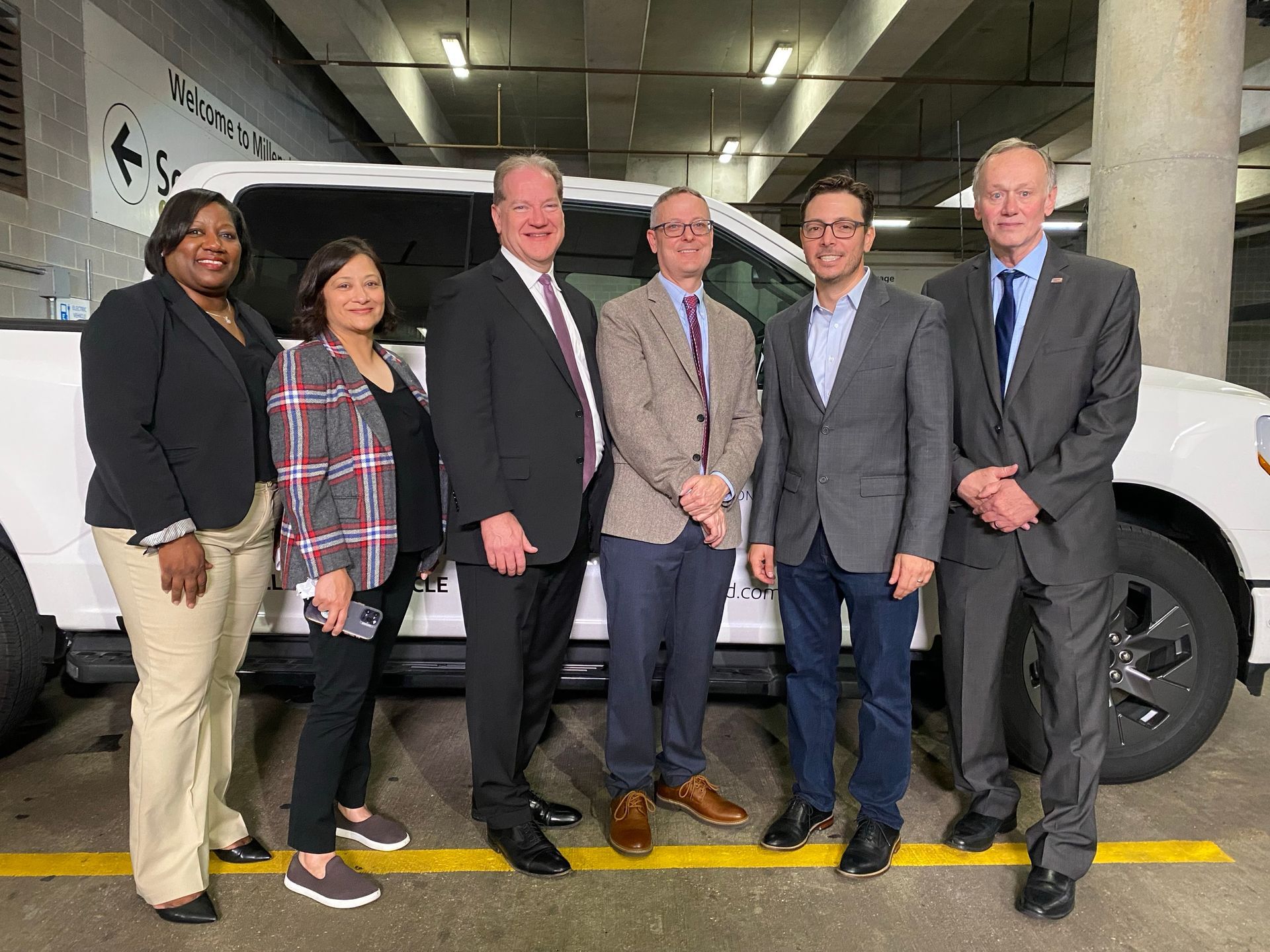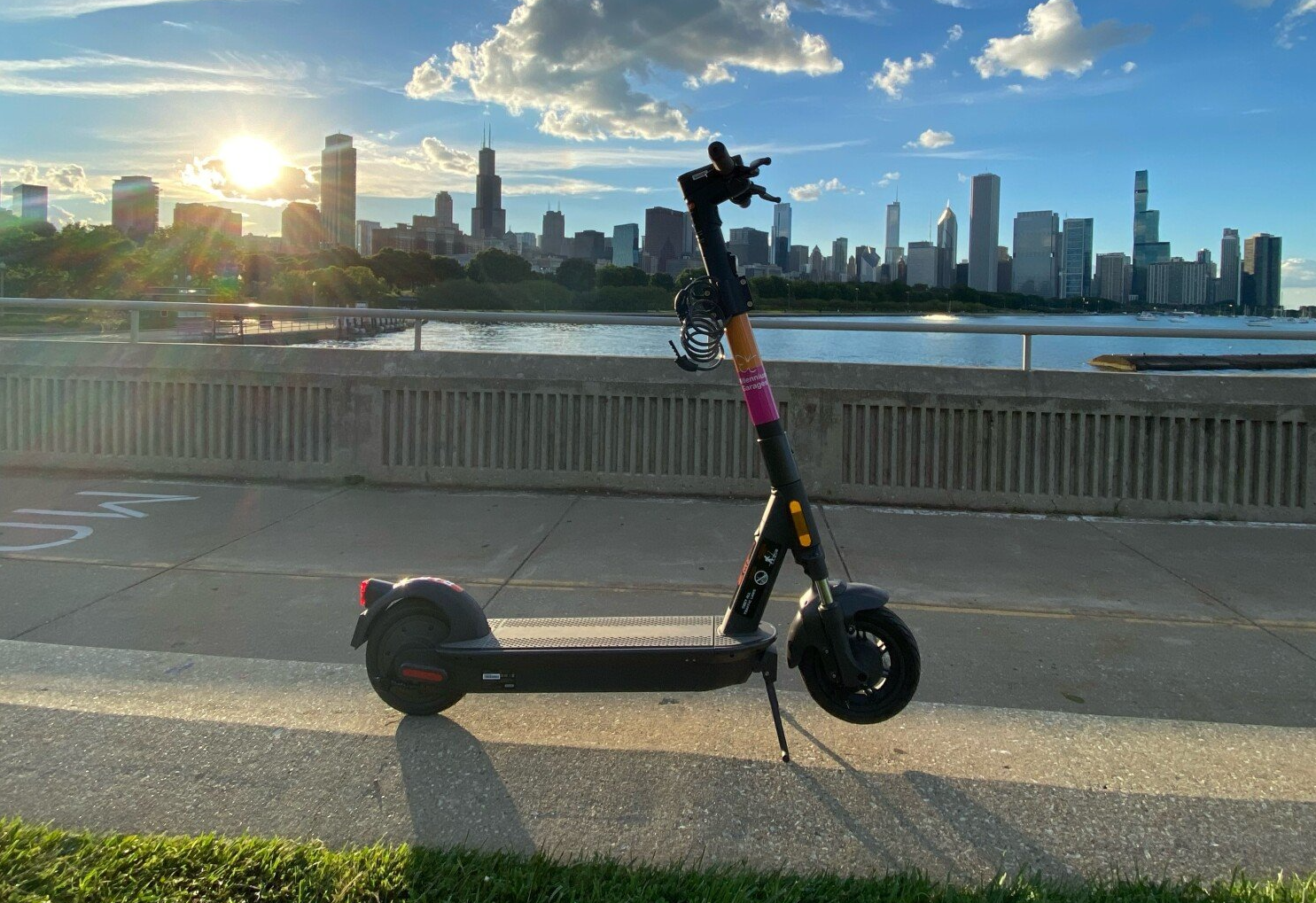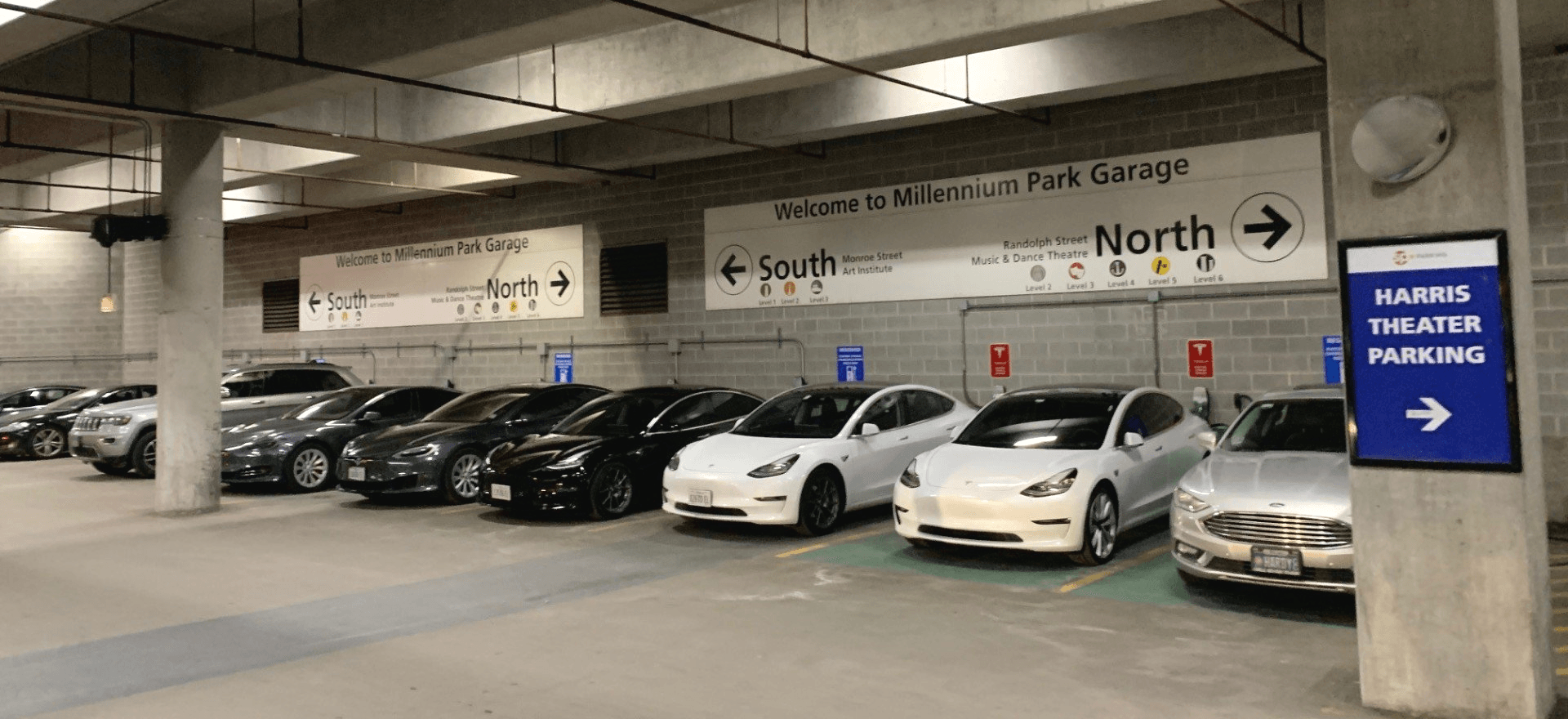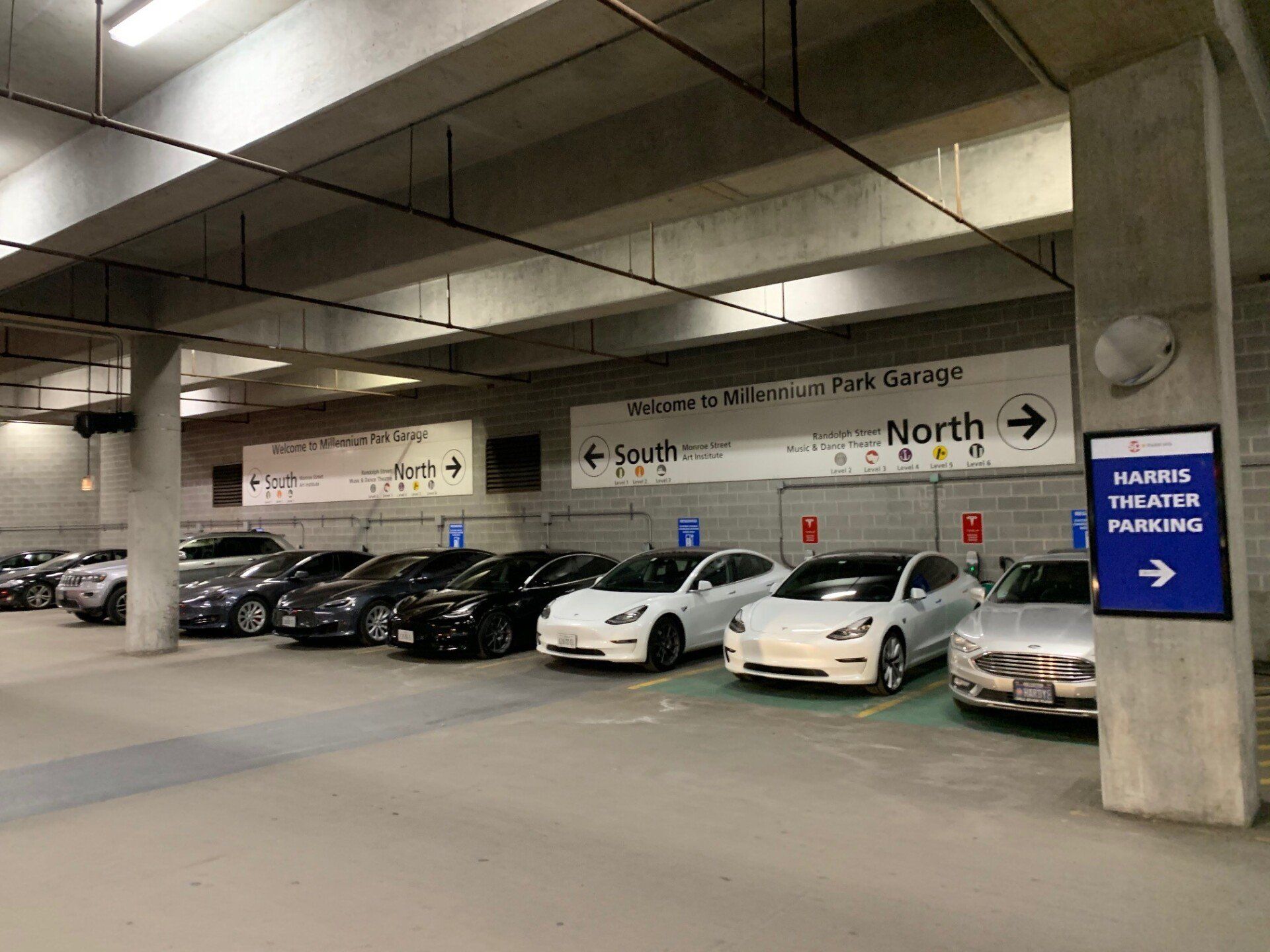By Civic Infrastructure Collaborative
•
October 4, 2023
Chicago, IL: On October 3, ComEd joined Civic Infrastructure Collaborative (CINCO) at Millennium Garages to highlight the first 100 electric vehicle (EV) chargers installed as part of a plan to offer up to 300 total EV chargers at the downtown Chicago parking complex by 2026. This expansive EV charging hub is made possible through technical and operational support from ComEd, Civic Infrastructure Collaborative, SP+ Corporation, and multiple EV charging partners. ComEd recently awarded $200,000 in energy efficiency incentives to support Millennium Garages in lowering its energy usage, reducing carbon emissions, and freeing up electrical capacity for clean transportation. "ComEd is committed to working with customers and our partners from across the state to accelerate the adoption of EVs, which can help lower pollution and bring cleaner air into our communities," said Melissa Washington, SVP of Customer Operations and Chief Customer Officer. "Millennium Garages' work to convert savings from ComEd's energy efficiency programs into the buildout of the largest EV charging hub in the Midwest will expand charging options for Chicago's residents, visitors and commuters, putting us closer to our clean transportation goals." Millennium Garages' four underground facilities include more than 9,000 parking spaces in the heart of the Chicago Loop. With 100 level-2 EV chargers , Millennium is already the region's largest public EV charging hub, and it plans to triple EV charging capacity by 2026. The garages feature a variety of charging options for customers, including EVPassport, ChargePoint, FlashParking and Tesla. All EV charging at Millennium Garages will be powered by certified renewable wind energy. "In partnership with ComEd and the City of Chicago, we are proud to expand charging access for local residents, commuters, visitors, and fleets," said Jamie Ponce, Millennium Garages' Chief Innovation & Strategy Officer. "Millennium makes it easy to go electric while making the most of our world-class city. As Chicago returns to in-person work and play, our EV charging program highlights how urban infrastructure can support important transportation, energy, and economic development opportunities." The number of EVs on the road are on the rise in Illinois today, a key goal outlined in the state's Climate and Equitable Jobs Act (CEJA). ComEd and Millennium Garages are supporting the State's goal of opening Illinois' roads to one million EVs by 2030. Currently, there are 70,000 EVs in northern Illinois, nearly 23,000 of which are registered in Cook County. Demand for EVs and EV charging is expected to climb steadily in the years ahead. "We are delighted about this large installation of chargers in a prominent location in the heart of Chicago at Millennium Garage's underground parking facility," said Megha Lakhchaura, State of Illinois EV Officer. "This is a testament to the growing popularity of electric vehicles and we commend Millennium Garages and ComEd for investing in their customers to align with the state's goals to accelerate the transition to zero-emission vehicles and fight climate change." By reducing energy consumption and utility costs, efficiency efforts at Millennium Garages and other facilities have enabled increased investment in EV charging and clean energy. With more than $200,000 in energy efficiency incentives from ComEd, Millennium Garages recently completed ventilation and building automation system upgrades to reduce annual energy consumption by an estimated two gigawatt-hours—the equivalent of eliminating 3.1 million pounds of carbon emissions a year. "Whether it's securing billions of dollars in new EV investment and jobs for Illinois' communities or building one of the most robust EV charging networks in the country, and thanks to the investments in our electric grid and infrastructure, Illinois and Chicago are well-positioned to be national leaders in our electric vehicle transition for years to come," said Jack Lavin, President & CEO, Chicagoland Chamber of Commerce. "We applaud Millenium Garages, ComEd, and our partners in government for coming together to build the largest EV charging hub in Midwest and we look forward to continuing to work together to drive the sustainable economic development opportunities being made possible through our transition to an EV future." Expanding clean energy options that lower carbon emissions and generate energy savings is a central tenet of the state's Climate and Equitable Jobs Act (CEJA) law, which directs investments to accelerate EV adoption and energy efficiency programs to help customers lower carbon emissions. ComEd customers have achieved over $8 billion in savings on their energy bills since the award-winning ComEd Energy Efficiency program launched in 2008. These efforts play a role in offsetting harmful carbon emissions, improving air quality, and helping to reverse the impacts of climate change. "As we work towards a cleaner, healthier future, we are encouraged to see the expansion of the Midwest's largest public EV charging hub. This initiative aligns perfectly with our mission to improve air quality and reduce pollution, as electric vehicles play a crucial role in reducing harmful emissions," said Harold Wimmer, President and CEO of the American Lung Association. "A transition to clean, zero-emission vehicles would have a dramatic impact on the air quality and health of Illinois residents. By providing convenient and accessible charging options, we are taking significant steps towards a greener, more sustainable Chicago." "Our Climate Action Plan sets aggressive goals for electrifying transportation in Chicago, including electric vehicles," said Angela Tovar, City of Chicago Chief Sustainability Officer. "We are fortunate to have forward-thinking partners like the Millennium Garages working to help us meet those goals and to improve our city's air quality at the same time." "In addition to strongly supporting public transit, walking, and biking, prioritizing EV adoption is a critical part of Chicago's goals to reduce transportation carbon emissions," said Acting Commissioner of the Chicago Department of Transportation (CDOT) Tom Carney. "The expansion of Midwest's largest public EV charging hub at Millennium Garages complements the City's ongoing efforts to build out EV infrastructure and will help make going electric a more convenient option for Chicago's residents and visitors." "IACT encourages the use of clean fuel vehicles, clean fuels, and advanced vehicle technologies to promote cleaner air, improve the environment, energy efficiencies, domestic and renewable fuels, and a reduction in the use of imported petroleum," said John Walton, Chair of Illinois Alliance for Clean Transportation (IACT). "Millennium Garages' EV charging program and the collaboration with ComEd to expand electrification across northern Illinois will play a role in helping us to achieve all of the above." EV charging at Millennium Garages follows ComEd's ongoing work across the region as they develop solutions to electrify fleet vehicles and embrace cleaner technologies. To accelerate EV adoption and to help more customers achieve their sustainability goals, ComEd recently announced a $231 million investment in electrification , with plans for new rebates, rates and pilot studies to help more customers move toward EVs and higher efficiency technology upgrades, like heat pumps, at home. "The commitment today by Millennium Garages and ComEd serves as a great model in how we can leverage our parking infrastructure to decarbonize in a way that provides real benefit to all," said Brian Imus, Executive Director of the Illinois Green Alliance, a nonprofit that promotes green building technology and design. "This investment is an important one to spotlight because it reminds us that no building, including parking garages, can be left behind if we are to achieve our region's ambitious climate goals." For more on how ComEd is helping customers unlock the benefits of electrification and EVs, please visit www.ComEd.com/EV . To learn about EV charging at Millennium Garages, please visit www.MillenniumGarages.com/ElectricVehicles .













